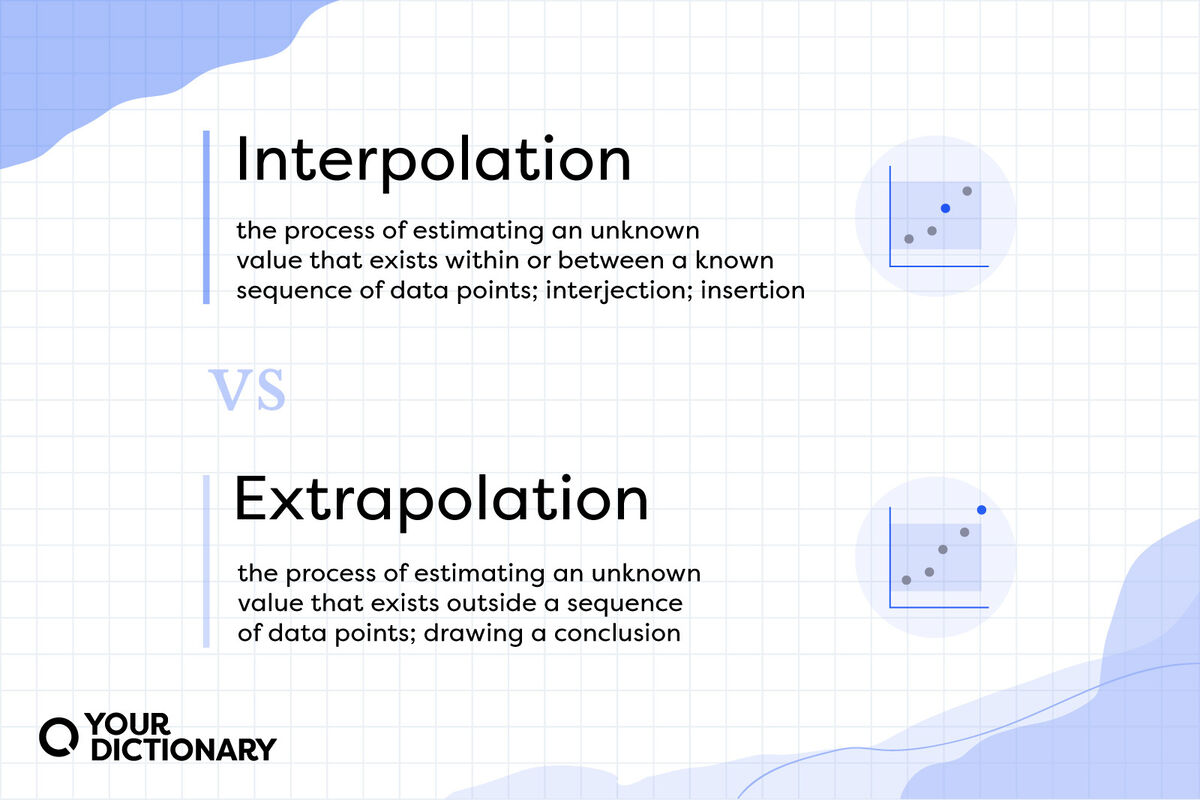
In statistics, you’re presented with a bunch of numbers and data, and as a statistician, you draw some educated guesses and conclusions based on that data. Interpolation and extrapolation are rooted in that, and they’ve become words used outside of just math, though you may not be using them properly. One means adding or inserting, while the other means making inferences or drawing conclusions.
Telling the Difference: Inter- vs. Extra-
Part of the confusion of these two words comes from the fact that they sound similar and have the root -polate, which comes from Latin polare, meaning “to smooth or polish.” Extrapolation actually came from interpolation as a necessary analog.
The key is understanding the prefixes. Inter- means “among or between,” while extra- means “outside or beyond the scope of.”
Interpolation: Within the Data Points
Outside of data science, interpolation is the process of introducing something extra into a situation and is synonymous with interjection or insertion.
In math and data science, interpolation is the process of determining an unknown value that exists within or between a known sequence of data points. As a very basic example, if you have a dataset comprising 1, 2, 4, 5, you can use interpolation to estimate that 3 might exist somewhere within that dataset.
Extrapolation: Outside the Data Points
Extrapolation outside of math means making an inference or drawing a conclusion based on known facts.
In math and statistics, extrapolation is the process of calculating an unknown value that exists outside a sequence of data points. This involves making a calculated estimate given the data you have. A simplified example: If you have a dataset that comprises 1, 2, 3, 4, you can extrapolate that the next number in the sequence is probably 5.
How To Use ‘Interpolation’ and ‘Extrapolation’
In general conversation, you’re interpolating when you add information or fill in the blanks to what someone else has said. If your friend is recounting a story about you eating ice cream, you might interpolate that you got a scoop of rocky road.
You’re extrapolating when you make a conclusion based on what someone has told you. If your dad keeps sending you links to kitchen tools before his birthday, you can extrapolate that and conclude that he probably wants some cooking implements as gifts.
Don’t Go Jumping to Extrapolations
Unless you’re a statistician or investment banker, you probably don’t need to know the full technical ins and outs of interpolation and extrapolation. Still, if you plan to interpolate or extrapolate in your everyday life, it’s worth knowing the difference.